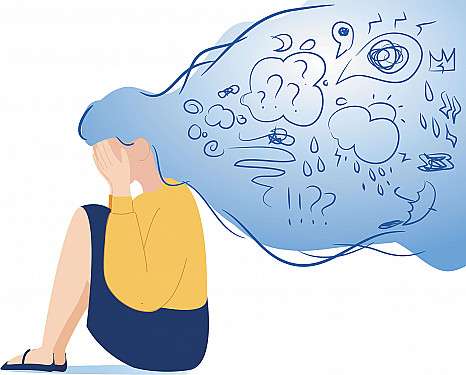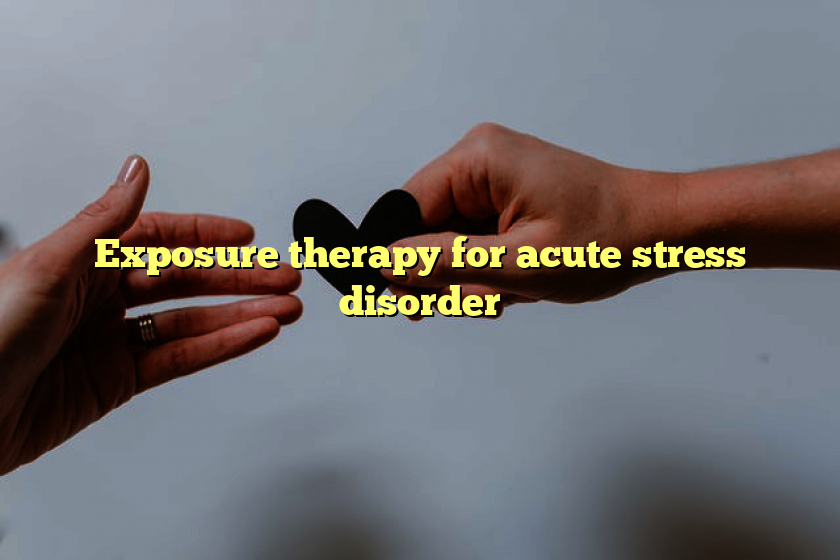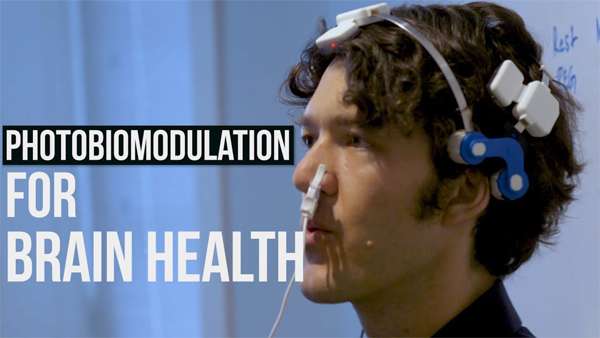I think I need help. I’m really into mindfulness and meditation and when I became more aware of my internal feelings, I realized there is a constant tension inside my body near my stomach and chest. You know that feeling when you have to say something in front of group of people? I feel it almost all the time.
It’s terrible, honestly, especially in a long-term. I have problems with my digestion no matter if I’m eating healthy or not, I can’t see beauty of everyday life and I just can’t relax.
I will explain you what is happening in my head. I have constant feeling that my time on Earth is limited. My main life goals are quite precise:
– I want to find eternal peace
– I want to earn enough money to buy myself freedom (retire before 50)
– I want to be totally healthy until the end of my life
– I want to leave a valuable mark in this world (probably in IT section, but who knows)
As you can see, I’m quite ambitious person. I spend a lot of time on reading and learning. I learn programming, I learn trading on market, I read about self development, spiritural development, mindfulness, I do bodyweight training etc. Sounds pretty good, isn’t it?
Well, it’s not. I have a feeling that day is definitely too short. I feel bad when I wake up too late, when I caught myself on procrastinating, it’s also so annoying to me how much things I have to do daily that are not related to my “higher goals” like cleaning, cooking, laundring etc. Actually, I feel bad when I’m doing almost ANYTHING that isn’t related to my “higher goals”. That’s why I just can’t relax. I can’t enjoy the nice weather, I can’t enjoy beauty of nature, it’s sometimes even hard to enjoy spending time with my girlfriend. I feel relaxed when I’m drinking or playing, but it’s not literally relaxing, it’s more like escapism. I’ve already cut my drinking by ~90%, mostly because I was seriously sick (mononucleosis), but I think that this sickness saved me from alcoholism.
I also worry a lot about my future. I often can’t be present, because I make a lot of calculations and predictions in my head, make future plans and I really like doing it, but I think’s it’s harmful in the long term. My expectations are definitely too high.
I also have problem with my empathy. I just don’t care a lot about other people, but I know that I have to feel love and compassion to find internal peace. There is no other way aroud.
I think I described most of my problems. I’m preparing for new way of meditation that is connected with affirmations binaural beats and letting go, but I also want to know your point of view. Maybe I’m missing something important. If I won’t see any improvements in my internal feelings until the end of the year, I’m going to meet a psychologist.
For more information about symptoms, read anxiety, fear and panic .
If you’re experiencing symptoms of anxiety over a long period of time, you may have an anxiety disorder.
Generalised anxiety disorder (GAD)
Generalised anxiety disorder (GAD) is a long-term condition that can make you feel anxious about a wide range of situations and issues, rather than one specific event.
You may have GAD if:
- your worrying is uncontrollable and causes distress
- your worrying affects your daily life, including school, your job and your social life
- you cannot let go of your worries
- you worry about all sorts of things, such as your job or health, and minor concerns, such as household chores
You should see your GP if anxiety is affecting your daily life or causing you distress. They can diagnose your condition based on your symptoms, which may include:
- feeling restless or on edge
- being irritable
- getting tired easily
- having difficulty concentrating or feeling your mind goes blank
- having difficulty getting to sleep or staying asleep
- having tense muscles
If you’re diagnosed with GAD, there is treatment available. Read more information about treating GAD.
Physical exhaustion is another common sign. Dr. Gold said that one of her key symptoms of burnout was fatigue. “I realized I was sleeping every day after work — and I was like, ‘What is wrong with me?’ but it was actually burnout,” she said.
Changes in eating habits — either eating more or less than usual — can also be a sign of burnout: In the study of Italian health care workers, 56 percent reported changes in food habits. People might eat less because they’re too busy or distracted, or they might find themselves craving “those comfort foods that we all like to go to when we need something to make us feel better,” Dr. Bennett said. Research suggests, too, that stress hormones can affect appetite, making people feel less hungry than usual when they’re under a lot of stress, and more hungry than usual when that stress alleviates.
Headaches and stomachaches can also be incited by burnout, Dr. Gold said. One study of people in Sweden suffering from exhaustion disorder — a medical condition similar to burnout — found that 67 percent reported experiencing nausea, gas or indigestion, and that 65 percent had headaches. It’s also important to note that burnout can develop alongside depression or anxiety, both of which can cause physical symptoms. Depression can cause muscle aches, stomachaches, sleep issues and appetite changes. Anxiety is linked to headaches, nausea and shortness of breath.
What to do
If you’re experiencing physical symptoms that could be indicative of burnout, consider seeing your primary care doctor or a mental health professional to determine whether they are driven by stress or rooted in other physical conditions, Dr. Dyrbye said. Don’t just ignore the symptoms and assume they don’t matter.
“It’s really easy to blow off your own symptoms, especially in our culture, where we’re taught to work hard,” Dr. Gold said.
If it is burnout, then the best solution is to address the root of the problem. Burnout is typically recognized when it is job-driven, but chronic stress can have a variety of causes — financial problems, relationship woes, and caregiving burdens, among other things. Think about “the pebbles in your shoe all the time that you have to deal with,” Dr. Maslach said, and brainstorm ways to remove some of them, at least some of the time. Perhaps you can ask your partner to help more with your toddler’s bedtime routine, or get take-out when you’re especially busy so you don’t have to plan dinner, too.
Despite popular culture coverage of the issue, burnout can’t be “fixed” with better self care, Dr. Maslach said — in fact, this implication only worsens the problem, because it lays the blame and responsibility on those with burnout and implies that they should do more to feel better, which is not the case, she said. However, some lifestyle choices can make burnout less likely. Social support, for instance, can help, Dr. Gold said. This could include talking to a therapist or meeting with friends (even if over Zoom). It may also help to take advantage of mental health or exercise benefits offered by your employer. Sleeping more can help too — so if you’re suffering from insomnia, talk to a doctor about possible treatments, Dr. Bennett suggested.
IMAGES PROVIDED BY:
1) 841203876 / Getty Images
2) monkeybusinessimages / Getty Images
3) Claus Lunau / Bonnier Publications / Science Source
4) digitalskillet / Getty Images
5) Kwangmoozaa / Getty Images
6) Marcos Calvo / Getty Images
7) Eraxion / Thinkstock
8) SCIEPRO / Getty Images
9) SasinParaksa / Thinkstock
10) Rostislav_Sedlacek / Getty Images
11) Chad Baker / Jason Reed/Ryan McVay / Getty Images
12) Corbis / VCG / Getty Images
SOURCES:
American Psychological Association: “Stress effects on the body.”
Anxiety And Depression Association Of America: “Understand the Facts: Chronic Pain,” “Understand the Facts: Symptoms,” “Stress and Anxiety Interfere With Sleep.”
Cleveland Clinic: “Anxiety Disorders.”
Clujul Medical: “Anxiety and IBS revisited: ten years later.”
Gastroenterology and Hepatology From Bed to Bench: “Psychological disorders in patients with chronic constipation.”
Harvard Health Publications: “Understanding the stress response,” “Anxiety and physical illness,” “Why stress causes people to overeat,” “The gut-brain connection.”
International Journal of Impotence Research: “The relationship of serum and salivary cortisol levels to male sexual dysfunction as measured by the International Index of Erectile Function.”
Journal of Sexual Medicine: “Chronic stress and sexual function in women.”
National Sleep Foundation: “How Does Anxiety Affect Sleep?”
Public Health Review: “Anxiety and Depression: Linkages with Viral Diseases.”
Oxidative Medicine and Cellular Longevity: “High anxiety: Recognizing stress as the stressor.”
U.S. Department of Health and Human Services Office on Women’s Health: “Reproductive health and mental health.”
 Katrien Limón in Hawaii at Volcanoes National Park in 2019. (Photo courtesy of Katrien Limón)
Katrien Limón in Hawaii at Volcanoes National Park in 2019. (Photo courtesy of Katrien Limón)
Walking briskly up a steep hill to pick up her daughter from school, Katrien Limón felt a pain in her chest.
“Like I had the worst acid reflux of my life,” she said.
Katrien, who lives in Montrose, California, had been treated for acid reflux before. So on that afternoon in June 2018, she took medication and drank water. The pain, however, only seemed to go away when she stopped or walked at an easy pace.
Finding no relief after two weeks, Katrien went to urgent care. She received stronger medication. It didn’t help, so she followed up with her doctor a week later. The doctor thought it might be reflux-related and referred Katrien to a gastroenterologist. Tests for possible gallbladder disease and other stomach issues found no answers.
Katrien returned to her primary doctor, who suggested it could be anxiety and prescribed anxiety medication. Although her daughter Ava – then 7 – has autism and requires constant attention, Katrien wasn’t convinced anxiety was causing her pain, which was now traveling into her throat and sometimes her jaw.
 From left: Katrien Limón with her son Johnny, daughter Ava and husband John. (Photo courtesy of Katrien Limón)
From left: Katrien Limón with her son Johnny, daughter Ava and husband John. (Photo courtesy of Katrien Limón)
“It was almost like a bad toothache at times,” she said.
Katrien’s husband, John Limón, said his wife always seemed exhausted. She’d run out of breath during regular walks or trips to the park with their kids.
“Things would be half done around the house, like she just got too tired,” he said.
While shopping with her family, Katrien experienced tunnel vision and felt “like the energy was sucked out of me.” Her smartwatch showed her heart rate was 130 beats per minute, even though she was walking slowly. She went to the ER, but again testing failed to offer clues.
Katrien tried to widen her perspective on what could be the root of the problem. Could it be her heart?
As a teenager, she saw her father struggle with cardiovascular disease. When she was 13, he had the first of several strokes, a consequence of an arrhythmia he’d been diagnosed with in college and hadn’t managed very well. Over the next 15 years, he was treated for heart valve disease, a heart attack and additional strokes before dying.
 Katrien Limón at age 2 with her father, Cornelius Greenway. (Photo courtesy of Katrien Limón)
Katrien Limón at age 2 with her father, Cornelius Greenway. (Photo courtesy of Katrien Limón)
So, she definitely had a family history. Then again, only months earlier, testing during her annual physical showed normal cholesterol and blood pressure. Plus, she’d recently lost 30 pounds.
Still, none of the other specialists could find the source of her problem. Worse, she thought they didn’t believe something was wrong with her. With nothing to lose, she saw a cardiologist.
A stress test showed Katrien had decreased blood flow. During a cardiac catherization procedure, doctors discovered a main coronary artery was 90% blocked and another was 95% blocked.
“I’ve never seen someone your age have what you have,” the doctor said. Katrien was 37. He added that if she had suffered a heart attack, she may not have survived.
She was diagnosed with coronary artery disease, the most common type of heart disease, which is caused by plaque buildup in the walls of the arteries that supply blood to the heart and rest of the body. She needed a double bypass operation to reroute the blood flow around the compromised arteries.
She reached out to her family and learned that her mom struggled with high blood pressure. Among her seven siblings, she was the only one who didn’t have high blood pressure or high cholesterol. She also learned one of her brothers had a heart attack at age 48.
John, whose grandfather and great-grandfather both had bypass surgery in their 70s, said Katrien’s diagnosis made him realize heart issues aren’t limited to older people.
“It wasn’t something I ever thought we’d have to worry about at a young age, but genetics can really play a role,” he said.
The surgery came a week after the diagnosis. She spent a week recovering in the hospital. A 12-week cardiac rehab program helped her build strength and confidence to return to physical activity. Emotional scars lingered, however. Katrien struggled with panic attacks for about a year.
 Katrien Limón recovering in the hospital after double heart bypass surgery. (Photo courtesy of Katrien Limón)
Katrien Limón recovering in the hospital after double heart bypass surgery. (Photo courtesy of Katrien Limón)
Now 40, Katrien continues to see her cardiologist and take medications. She’s shifted to a plant-based diet and practices yoga and meditation to help reduce anxiety and stress.
John pays closer attention to his health, too. Previously diagnosed with prediabetes, he’s lost weight on the family’s new diet and is better about following up with his doctors.
Katrien said her experience demonstrates the importance of being your own health advocate and following up when something doesn’t seem right.
“You know your body better than any doctor,” she said. “Sometimes you have to fight for your diagnosis. If I had been complacent, I may have had a heart attack and I think about that every day.”
Stories From the Heart chronicles the inspiring journeys of heart disease and stroke survivors, caregivers and advocates.
If you have questions or comments about this story, please email [email protected].



